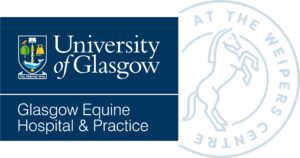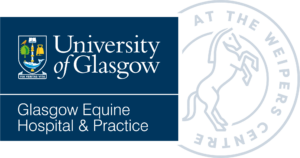Winter MOT for Your Horse – Winter Health Checks at Glasgow Equine Practice
Why a Winter MOT for Your Horse?
Winter is a good time to take stock of your horse’s overall health. Workloads often change, turnout can be limited, and underlying problems such as dental pain, eye disease or early laminitis risk can be easier to miss.
Our Winter MOT is designed to give you a structured, thorough check-up at a set fee, with optional add-ons for cases where we want to investigate a bit further.
What's Included in our Winter MOT
The Winter MOT is a fixed-fee package of £159 plus the visit fee and includes:
Full clinical examination
Trot-up and basic lameness assessment
Ophthalmic (eye) examination
Free blood sample and full blood profile (haematology and biochemistry)
Worming risk assessment and tailored worming advice
We use tools such as the “What’s Your Worm Risk?” online assessment to support that discussion and help decide whether further testing, such as a tapeworm saliva test, is appropriate for your horse.
The blood sample and full profile help us pick up issues such as anaemia, inflammation, liver or kidney changes early, before they become obvious in performance or weight.
Optional Add-Ons: Dental, Foot Balance & Laminitis Risk Testing
For some horses it is helpful to add further checks at the same visit. During the Winter MOT period we offer reduced fees on specific add-ons, provided they are carried out at the same appointment.
Dental Examination & Rasping – £66 (25% off)
Dental pain is a common but often hidden cause of weight loss, quidding and poor performance. Our Winter MOT dental add-on includes:
Full oral and dental examination
Routine dental rasping
Any additional treatment beyond routine rasping (for example diastema treatment, extractions or other advanced procedures) is not included and would be discussed separately.
We’ve set this Winter MOT dental fee at 25% off the standard price, so it offers even better value than the usual 20% Healthcare Plan discount on dentals.
Foot Balance Radiographs – £153 (10% off)
Subtle changes in foot balance can increase the risk of lameness and laminitis over time. As an add-on to the Winter MOT, we can take four foot balance radiographic views at a reduced fee of £153, including sedation if required.
These X-rays help us:
Assess hoof balance and alignment
Identify early “problem areas”
Support farriery planning and laminitis prevention
Karo Syrup Insulin & Glucose Test – £157 (20% off)
Laminitis risk is closely linked with Equine Metabolic Syndrome (EMS) and how your horse’s body handles sugar. The Karo Syrup Insulin & Glucose Test is a dynamic test which:
Takes paired blood samples before and after a measured dose of Karo Light syrup
Measures both insulin and glucose
Helps us assess EMS and laminitis risk more accurately
The standard price for this test (including the additional £20.15 lab element) is £196, but during the Winter MOT offer the same-visit price is £157. The test takes around 90 minutes from start to finish, as we need a blood sample at the beginning and at the end of the stimulation period.
Worming Risk Assessment - Smarter Decisions, Fewer Wormers
Over-worming is a concern for resistance and gut health, but under-worming carries genuine welfare risks. As part of the Winter MOT, we look at your horse’s individual risk rather than using a one-size-fits-all approach.
We consider:
Age, grazing and turnout
Past worming history
Yard management, dung removal and stocking density
We will often use the online “What’s Your Worm Risk?” assessment as a structured way to guide this conversation and then decide together whether a tapeworm saliva test or other targeted testing is appropriate. The tapeworm test isn’t included in the Winter MOT fee but may be recommended based on risk.
Older Horses: PPID (Cushings) Screening
For horses 12 years and over, the Winter MOT is an ideal opportunity to screen for PPID (Cushings) using the same free blood sample we are already taking for the profile.
Key points:
No extra needle sticks – we use the same sample where possible
PPID can underlie weight loss, recurrent laminitis, coat changes and infections
There is frequently a Care About Cushings voucher available for free laboratory ACTH testing, and we can advise you on this at the time of booking
Early diagnosis of PPID allows us to manage the condition proactively and reduce the risk of laminitis and other complications.
Who is the Winter MOT for?
The Winter MOT is suitable for:
Older horses and ponies (especially 12+)
Good-doers and ponies at risk of EMS or laminitis
Horses with a history of dental issues, weight change or performance concerns
Horses whose workload or management changes significantly over winter
Any equine client of Glasgow Equine Practice can book. For horses on our Healthcare Plan, the Winter MOT uses a separate set of fixed promotional fees, so Healthcare Plan discounts do not apply on top – we will always help you choose the most cost-effective option in your situation.
When is the Winter MOT Available?
The Winter MOT is a time-limited offer:
Available from 1 December to 29 February
Winter MOT fee codes and discounts apply only within this period
After this date, appointments revert to normal pricing and individual item fees.
How to Book
If you’d like to book a Winter MOT for your horse:
Call the practice on 0141 330 5999
Ask for a “Winter MOT” appointment
Let us know if you are interested in dental & rasping, foot balance radiographs or the Karo insulin & glucose test, so we can ensure enough time is booked in the diary
We’ll also discuss whether your horse might benefit from PPID screening or targeted tapeworm testing based on the worm risk assessment.


